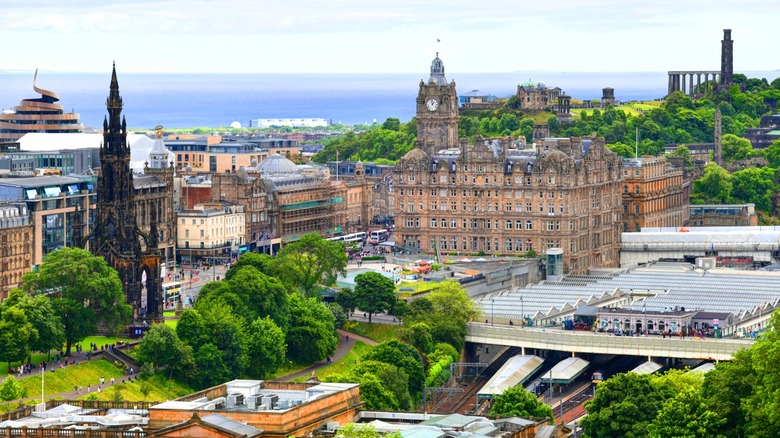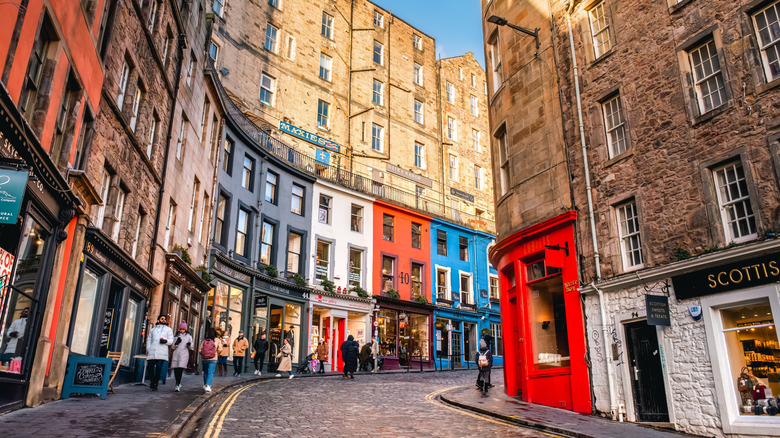The Unspoken Etiquette Rule To Never Break In Scotland Or You'll Risk Offending The Locals
Scotland is a popular tourist destination, ranking high on many travelers' vacation bucket lists — and it's easy to understand why. Aside from being one of seven European countries where you can camp for free, Scotland has breathtaking natural scenery, rich history and culture, and iconic landmarks that meet the needs of every type of traveler. However, if you decide to cross the European country off your bucket list, after covering all the essentials of an international trip, there are a few unspoken etiquette rules to consider to avoid offending the locals.
Chief among these is referring to the locals as English, or even British, rather than Scottish, under a misguided assumption that Scotland is part of England. It is not, though it is a misconception that many individuals make. In actuality, Scotland is a country separate from England, though Scotland (along with England and Wales) is part of the territory known as Great Britain, which you can view in luxury on Britain's best train journey. Along with Northern Ireland, Great Britain makes up what is referred to as the United Kingdom – which is the source of many individuals' confusion.
While Scotland has its own governing body led by the first minister, as part of the constitutional monarchy of the United Kingdom, King Charles III is recognized as their sovereign. However, what is imperative for visitors to remember is that despite its constitutional ties to England, Scotland is a separate country with a rich history and culture that is a source of great pride for many locals.
Why you shouldn't call the Scottish 'British'
Incorrectly referring to Scots as British, particularly when in Scotland, goes deeper than a simple faux pas. The ongoing political divide in Scotland adds a deeper meaning to the mix-up. Many Scots have, for decades, supported an independent movement to separate Scotland from the United Kingdom, while others reject the idea and argue for maintaining the status quo. The issue is a hotly debated one, adding to the tension of visitors mischaracterizing the Scottish locals as British.
With the etiquette rules covered, Scotland is truly a country worth visiting, with its stunning scenic landscape and unique cultural expressions, including iconic Scottish musical instruments, like the bagpipe, and fashion, including the tartan kilts worn predominantly by men, but also women. A visit to Glencoe Valley in the Scottish Highlands will have visitors hearing bagpipes in the wild for a truly sensory experience. Scotland is also known for its many historical attractions, including World Heritage-designated destinations like St. Kilda, a biodiverse haven for nature lovers, and New Lanark, which is celebrated for the social reforms that were enacted in the town, including shorter working days. For travelers fascinated by royal history, Scotland also has numerous castles steeped in rich history and ancient lore, not to mention the Crown Jewels of Scotland, currently on display at Edinburgh Castle.
If you haven't already, make Scotland your next bucket list dream country. Just be sure to pack a good mix of casual and warm clothing, because the weather can be unpredictable, and never refer to the Scottish locals as British.

